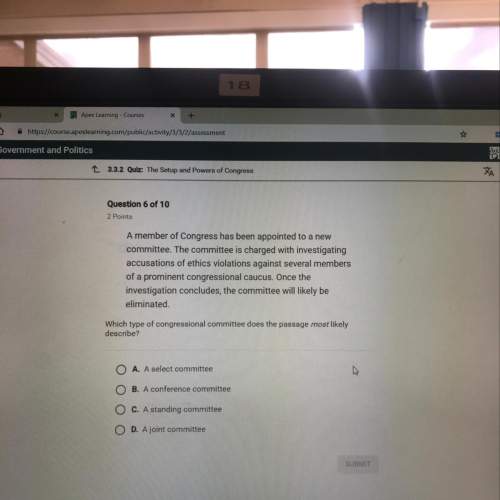
History, 16.11.2020 20:40 msdmdsm7925
N your response, be sure to address all parts of the question. Use complete sentences; an outline or bulleted list alone is not acceptable.
Use the passage below to answer all parts of the question that follows.
“The greater and lesser daimyo [lords] of the provinces and all their salaried officials must speedily expel any soldiers in their service who have been accused of rebellion or murder. . . . Any repairs to castles in the provinces must be reported to the government of the shogun [ruler of Japan], as well as any new construction, which is strictly forbidden. Walls extending more than a certain distance are a peril to the state. High fortresses and well-dredged moats are the origins of great turmoil. . . . [When reporting for duty] daimyo with larger estates should not be escorted by more than twenty mounted warriors. Daimyo with smaller estates should reduce their escort proportionally.”
Decree issued by the newly established Tokugawa Shogunate concerning the regulation of warrior households, Japan, 1615
a) Identify ONE purpose of the decree.
b) Identify ONE way in which the decree reflects the historical situation of the period 1450–1750 in terms of state development.
c) Identify ONE piece of evidence from the decree that a historian could use to argue that powerful elites remained a threat to states in the period 1450–1750.

Answers: 3


Other questions on the subject: History

History, 21.06.2019 14:00, BeverlyFarmer
What is one reason the united states had a two party system
Answers: 1


History, 21.06.2019 21:10, micieloalvarado
How did the northern u. s. change during the 19th century? select the best choice from the answers provided. a. it became more industrial. b. it became more agrarian. c. it became less populated. d. it became less diverse
Answers: 2

History, 21.06.2019 22:30, mahmudabiazp3ekot
Select the correct answer from the drop-down menu. during the (scientific revolution, renaissance, industrial revolution), european intellectuals rejected many teachings of ancient scientists promoted by the church. to replace flawed theories, scientists began researching and conducting experiments. they used critical and reasonable thinking to draw concrete conclusions. this also led to the (scientific revolution, industrial revolution, enlightenment). it was an age that focused on using reason for understanding laws of nature and identifying humans' natural rights.
Answers: 1
You know the right answer?
N your response, be sure to address all parts of the question. Use complete sentences; an outline or...
Questions in other subjects:

Mathematics, 07.09.2020 02:01



Mathematics, 07.09.2020 02:01


History, 07.09.2020 02:01

Mathematics, 07.09.2020 02:01

History, 07.09.2020 02:01


Biology, 07.09.2020 02:01




